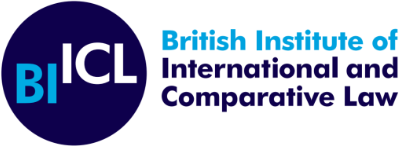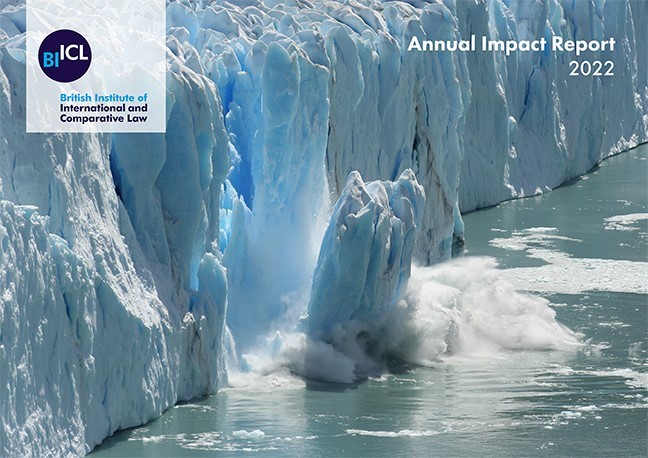Impacts of Our Work
Many of BIICL's activities have a direct or indirect impact on policy and law, as well as more generally on the responses of others to our work. While this is primarily in regard to our research and publications, our events and training also provide wider public benefit in terms of information and education about contemporary legal issues. A snapshot of some key impacts from our work in 2022 is provided below.
Centre For International Law
International law, with its set of rules established through treaty or custom, is the key to stable international relations, collective security and sustainable development. When international law is not respected, growing insecurity and inequalities, as well as attacks on the rule of law, become the norm.
The Centre for International Law at BIICL continues to address some of the most pressing legal issues of our time, including those linked to climate change, human rights, modern slavery, law protection of cultural heritage and law of the sea. The centre's activities focus on applied research which is at the core of our work.
Centre for Comparative Law
In a world characterized by complexity and interdependence, it is indispensable to understand similarities and contrasts between jurisdictions. Comparative methods are a key element to gain a profound understanding of the legal systems around the world and to advance their development. Perspectives and experiences of different jurisdictions enrich the legal debate and help in identifying areas prone for harmonisation and convergence of laws.
BIICL's Centre for Comparative Law covers a broad range of areas, from civil to commercial law, conflict of laws and dispute resolution. The Centre co-operates with various universities, distinguished scholars and research institutions in the UK and around the world.
Bingham Centre for the Rule of law
The Bingham Centre was founded by BIICL in 2010 to take forward the vision of Lord Bingham, a former President of the Institute. It was an inspiring vision then, with the Rule of Law coming under increasing strain. Today, it has become an urgent vision, as the institutions on which the Rule of Law depends to give it life are becoming more systematically undermined, requiring renewed effort to reach wider audiences about the meaning and fundamental importance of the Rule of Law.
Modern Slavery and Human Rights Policy and Evidence Centre:
The Modern Slavery and Human Rights Policy and Evidence Centre's vision is a world where everyone is protected from exploitation by effective laws and policies, informed by evidence. The Centre's mission is to enhance understanding of modern slavery across the globe and transform the effectiveness of laws and policies designed to overcome it.
Find out more about the Modern Slavery and Human Rights Policy and Evidence Centre
Training
Capacity building is an important part of the Institute's work. BIICL continues to develop its programme of short courses bringing a wide range of international law topics to participants around the world and expanding to offer new topics and programmes.
In addition to established courses which have now become flagship, 2022 also saw the development and launch of new courses responding to recent developments and building on BIICL's constantly evolving research programmes. Some of the new courses included Artificial Intelligence, Ethics and the Law, Energy Law, Climate Change Litigation, Labour Law as well as Pharma and Intellectual Property. We are delighted to have trained over 550 participants over the course of the year with overwhelmingly positive feedback from our participants.
International and Comparative Law Quarterly
The International and Comparative Law Quarterly (ICLQ) has a reputation for publishing high-quality articles in Public International Law, Private International Law, Comparative Law, European Law, and Human Rights Law. In 2022, the ICLQ achieved its highest score in the Clarivate Journal Citation Reports, increasing its 2-year Impact Factor to 2,000. It is now ranked as the top journal for European and Comparative law and second for international law. The journal also performed well in the Journal Citation Indicator (JCI), indicating its strong performance in law but also comparatively across academic fields.

